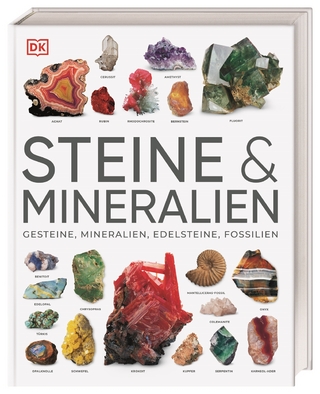
Climate and Culture Change in North America AD 900–1600
Seiten
2012
University of Texas Press (Verlag)
978-0-292-73741-9 (ISBN)
University of Texas Press (Verlag)
978-0-292-73741-9 (ISBN)
- Titel ist leider vergriffen;
keine Neuauflage - Artikel merken
Correlating climate change and archaeological data, an award-winning historian offers the first comprehensive overview of how the Medieval Warm Period and the Little Ice Age significantly impacted the Native cultures of the American Southwest, Southern Plains, and Southeast
Climate change is today’s news, but it isn’t a new phenomenon. Centuries-long cycles of heating and cooling are well documented for Europe and the North Atlantic. These variations in climate, including the Medieval Warm Period (MWP), AD 900 to 1300, and the early centuries of the Little Ice Age (LIA), AD 1300 to 1600, had a substantial impact on the cultural history of Europe. In this pathfinding volume, William C. Foster marshals extensive evidence that the heating and cooling of the MWP and LIA also occurred in North America and significantly affected the cultural history of Native peoples of the American Southwest, Southern Plains, and Southeast.
Correlating climate change data with studies of archaeological sites across the Southwest, Southern Plains, and Southeast, Foster presents the first comprehensive overview of how Native American societies responded to climate variations over seven centuries. He describes how, as in Europe, the MWP ushered in a cultural renaissance, during which population levels surged and Native peoples substantially intensified agriculture, constructed monumental architecture, and produced sophisticated works of art. Foster follows the rise of three dominant cultural centers—Chaco Canyon in New Mexico, Cahokia on the middle Mississippi River, and Casas Grandes in northwestern Chihuahua, Mexico—that reached population levels comparable to those of London and Paris. Then he shows how the LIA reversed the gains of the MWP as population levels and agricultural production sharply declined; Chaco Canyon, Cahokia, and Casas Grandes collapsed; and dozens of smaller villages also collapsed or became fortresses.
Climate change is today’s news, but it isn’t a new phenomenon. Centuries-long cycles of heating and cooling are well documented for Europe and the North Atlantic. These variations in climate, including the Medieval Warm Period (MWP), AD 900 to 1300, and the early centuries of the Little Ice Age (LIA), AD 1300 to 1600, had a substantial impact on the cultural history of Europe. In this pathfinding volume, William C. Foster marshals extensive evidence that the heating and cooling of the MWP and LIA also occurred in North America and significantly affected the cultural history of Native peoples of the American Southwest, Southern Plains, and Southeast.
Correlating climate change data with studies of archaeological sites across the Southwest, Southern Plains, and Southeast, Foster presents the first comprehensive overview of how Native American societies responded to climate variations over seven centuries. He describes how, as in Europe, the MWP ushered in a cultural renaissance, during which population levels surged and Native peoples substantially intensified agriculture, constructed monumental architecture, and produced sophisticated works of art. Foster follows the rise of three dominant cultural centers—Chaco Canyon in New Mexico, Cahokia on the middle Mississippi River, and Casas Grandes in northwestern Chihuahua, Mexico—that reached population levels comparable to those of London and Paris. Then he shows how the LIA reversed the gains of the MWP as population levels and agricultural production sharply declined; Chaco Canyon, Cahokia, and Casas Grandes collapsed; and dozens of smaller villages also collapsed or became fortresses.
An award-winning historian and fellow of the Texas State Historical Association, William C. Foster is the author of Historic Native Peoples of Texas and Spanish Expeditions into Texas, 1689-1768 and editor of Texas and Northeastern Mexico, 1630-1690 by Juan Bautista Chapa.
Preface
Introduction
Chapter 1. The Tenth Century
Chapter 2. The Eleventh Century
Chapter 3. The Twelfth Century
Chapter 4. The Thirteenth Century
Chapter 5. The Fourteenth Century
Chapter 6. The Fifteenth Century
Chapter 7. The Sixteenth Century
Summary and Conclusion
Notes
Bibliography
Index
| Reihe/Serie | Clifton and Shirley Caldwell Texas Heritage Series |
|---|---|
| Zusatzinfo | 4 maps, 1 graph |
| Verlagsort | Austin, TX |
| Sprache | englisch |
| Maße | 152 x 229 mm |
| Gewicht | 482 g |
| Themenwelt | Sachbuch/Ratgeber ► Natur / Technik ► Natur / Ökologie |
| Geisteswissenschaften ► Archäologie | |
| Naturwissenschaften ► Geowissenschaften ► Meteorologie / Klimatologie | |
| Sozialwissenschaften ► Ethnologie | |
| Sozialwissenschaften ► Soziologie | |
| ISBN-10 | 0-292-73741-6 / 0292737416 |
| ISBN-13 | 978-0-292-73741-9 / 9780292737419 |
| Zustand | Neuware |
| Haben Sie eine Frage zum Produkt? |
Mehr entdecken
aus dem Bereich
aus dem Bereich
über 500 faszinierende Gesteine, Minerale, Edelsteine und Fossilien
Buch | Hardcover (2023)
DK Verlag Dorling Kindersley
26,95 €


